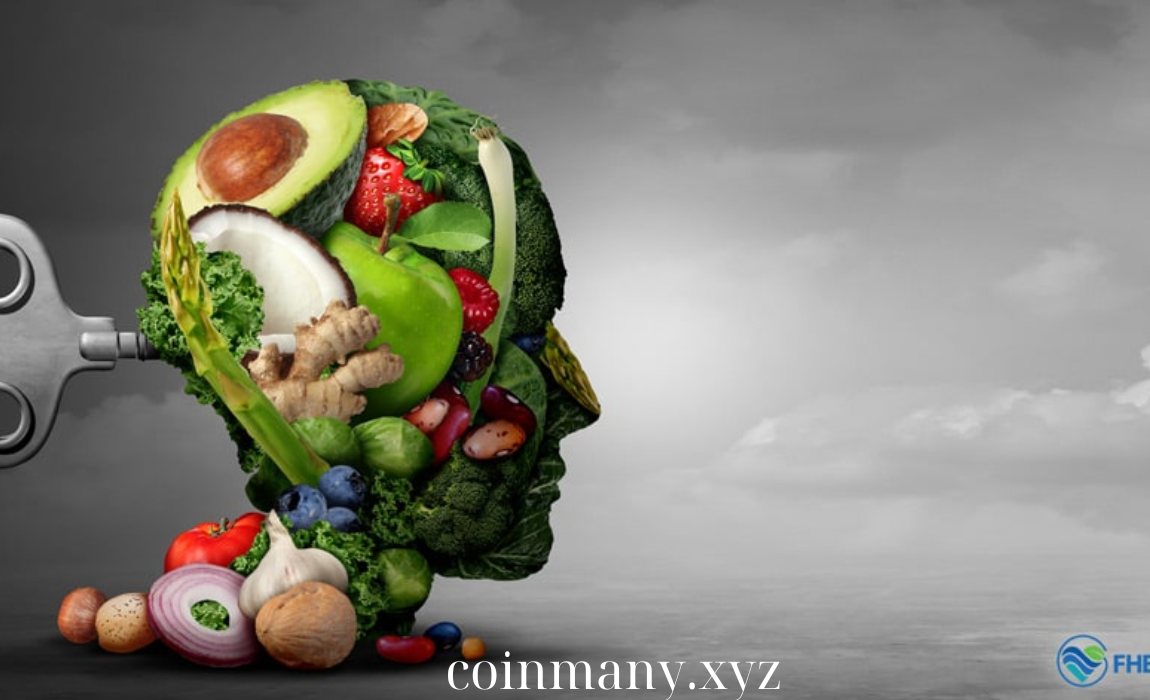
The connection between what we eat and how we feel is becoming increasingly clear. Emerging research shows that our diet plays a significant role in mental health and wellbeing. The food we consume can influence our mood, cognitive function, and emotional stability, meaning that a balanced, nutrient-rich diet is as important for our mind as it is for our body.
This guide explores the powerful ways diet impacts mental health and wellbeing, highlighting which foods and nutrients can boost mood, reduce stress, and enhance cognitive performance, while also addressing how poor dietary choices can negatively affect mental health.
1. The Gut-Brain Connection: The Role of the Microbiome
A key factor in the diet-mental health relationship is the gut-brain connection, often referred to as the gut-brain axis. The gut is home to trillions of microorganisms—collectively known as the gut microbiome—that play a critical role in digestion, immune function, and even the production of neurotransmitters like serotonin, which influences mood.
How It Affects Mental Health:
- Serotonin Production: Approximately 90% of the body’s serotonin, a neurotransmitter that regulates mood, is produced in the gut. A healthy microbiome supports the production of serotonin and other brain chemicals that are essential for emotional wellbeing.
- Inflammation and Brain Health: An imbalanced gut microbiome can lead to gut inflammation, which has been linked to increased inflammation in the brain. Chronic inflammation can contribute to mental health disorders like depression and anxiety.
- Stress Response: The gut microbiome also affects the body’s stress response. A balanced gut can help modulate cortisol levels (the stress hormone) and reduce the physical and emotional impacts of stress.
Dietary Solutions:
- Probiotics and Fermented Foods: Foods like yogurt, kimchi, sauerkraut, and kombucha contain probiotics, which support a healthy gut microbiome and, in turn, promote better mental health.
- Fiber-Rich Foods: Fiber from fruits, vegetables, and whole grains promotes the growth of beneficial gut bacteria. Bananas, apples, broccoli, and beans are excellent sources of gut-healthy fiber.
2. Nutrient Deficiencies and Mental Health Disorders
Deficiencies in certain vitamins and minerals can have a profound impact on mental health, contributing to conditions like depression, anxiety, and cognitive decline. Nutrients like B vitamins, omega-3 fatty acids, vitamin D, and magnesium are essential for maintaining brain health and emotional balance.
Key Nutrients:
- Omega-3 Fatty Acids: These essential fats, found in foods like flaxseeds, walnuts, and chia seeds, are crucial for brain health. Omega-3s support cognitive function and have been shown to reduce symptoms of depression and anxiety by lowering inflammation in the brain.
- B Vitamins (Especially B6, B9, and B12): B vitamins help regulate mood and energy levels by playing a role in the production of neurotransmitters like serotonin and dopamine. A deficiency in B12 or B9 (folate) has been linked to depression and cognitive decline.
- Magnesium: Known for its calming properties, magnesium helps regulate the nervous system and reduces stress. Leafy greens, nuts, and whole grains are good sources of magnesium, which can help alleviate anxiety and improve sleep quality.
- Vitamin D: Often called the “sunshine vitamin,” vitamin D plays a role in mood regulation and has been linked to lower rates of depression. Natural sunlight exposure and foods like fortified plant milks or mushrooms can help maintain healthy vitamin D levels.
Dietary Solutions:
- Fatty Acids: Add foods rich in omega-3s, such as chia seeds, flaxseeds, walnuts, and algal oil (a vegan alternative to fish oil), to your diet to support brain health.
- Leafy Greens and Legumes: Incorporate spinach, kale, lentils, and beans, which are high in B vitamins and magnesium, into your meals to boost mood and energy levels.
- Vitamin D: If you live in areas with little sunlight, consider a vitamin D supplement or focus on fortified foods like plant-based milks and mushrooms to maintain healthy levels.
3. The Impact of Sugar and Processed Foods on Mood
Highly processed foods and sugar-laden diets can lead to rapid changes in blood sugar levels, which can affect mood, energy, and cognitive function. While sugary snacks and junk food might offer a temporary boost, they often result in sugar crashes and mood swings.
How It Affects Mental Health:
- Blood Sugar Fluctuations: Foods high in refined sugars and simple carbohydrates can cause spikes in blood sugar, followed by sudden drops that lead to irritability, fatigue, and anxiety.
- Inflammation: Diets high in processed foods can increase inflammation in the body, which is associated with a higher risk of depression and anxiety.
- Nutrient Deficiencies: Processed foods are often low in essential nutrients that support brain health, leading to deficiencies that can affect mood and cognition over time.
Dietary Solutions:
- Whole Grains and Complex Carbs: Replace refined grains with whole grains like quinoa, brown rice, and oats. These foods release energy slowly and help maintain stable blood sugar levels.
- Natural Sweeteners: Opt for natural sweeteners like dates, maple syrup, or raw honey in moderation, which have a lower impact on blood sugar than refined sugars.
- Fresh, Whole Foods: Emphasize a diet rich in whole fruits, vegetables, nuts, and seeds that provide essential nutrients and antioxidants to support mental health.
4. Antioxidants and Brain Health
Oxidative stress, which occurs when there is an imbalance between free radicals and antioxidants in the body, has been linked to cognitive decline and mental health disorders. Antioxidant-rich foods help protect the brain from oxidative damage, promoting cognitive health and emotional wellbeing.
How It Affects Mental Health:
- Cognitive Function: Antioxidants reduce oxidative stress in the brain, which helps protect against memory loss and cognitive decline.
- Mood Stabilization: Diets rich in antioxidants have been associated with lower levels of depression and anxiety. They help protect the brain’s neurons and support neurotransmitter function.
Dietary Solutions:
- Berries: Blueberries, strawberries, and raspberries are packed with antioxidants like flavonoids, which improve brain function and protect against cognitive decline.
- Dark Leafy Greens: Vegetables like kale, spinach, and collard greens are high in antioxidants, especially vitamin C and vitamin E, which are crucial for brain health.
- Nuts and Seeds: Almonds, sunflower seeds, and pumpkin seeds are rich in vitamin E, a powerful antioxidant that protects the brain from oxidative damage.
5. Hydration and Mental Clarity
Dehydration can have a significant impact on cognitive function, mood, and energy levels. Even mild dehydration can lead to brain fog, difficulty concentrating, and increased irritability.
How It Affects Mental Health:
- Cognitive Decline: Lack of adequate hydration can impair short-term memory, decision-making, and concentration.
- Mood Swings: Dehydration can lead to feelings of fatigue, confusion, and irritability, negatively affecting overall mood.
- Stress Response: Hydration supports the body’s ability to manage stress and regulate cortisol levels, helping maintain emotional stability.
Dietary Solutions:
- Drink Water Regularly: Ensure you’re drinking enough water throughout the day to maintain mental clarity and mood balance.
- Hydrating Foods: Incorporate water-rich foods like cucumbers, watermelon, oranges, and celery to boost hydration naturally.
6. Mindful Eating for Mental Wellness
Mindful eating focuses on being fully present during meals, paying attention to hunger cues, and savoring the taste, texture, and aroma of food. This practice can reduce stress, improve digestion, and foster a healthier relationship with food, leading to improved mental health.
How It Affects Mental Health:
- Reduced Stress and Anxiety: Mindful eating helps individuals slow down, which can reduce stress and anxiety around food choices.
- Better Digestion: Eating mindfully encourages proper chewing and digestion, which supports gut health and overall wellbeing.
- Emotional Balance: Mindful eating can help prevent emotional eating and promote more balanced food choices that contribute to mental wellness.
Dietary Solutions:
- Slow Down During Meals: Take time to eat your meals slowly, paying attention to your body’s hunger and fullness cues.
- Savor the Flavors: Focus on the taste, texture, and aroma of your food to enhance your eating experience and improve satisfaction.
- Practice Gratitude: Begin meals with a moment of gratitude for the food in front of you, promoting a positive relationship with food and reducing stress.
Conclusion: Nourishing Your Mind and Body Through Diet
The powerful impact of diet on mental health and wellbeing is undeniable. A balanced, nutrient-rich diet supports emotional stability, cognitive function, and stress management. By focusing on foods that nourish both the body and mind—such as antioxidant-rich fruits, omega-3 fatty acids, probiotics, and complex carbohydrates—you can enhance your mental health and foster long-term wellbeing. The journey toward better mental health begins on your plate.






